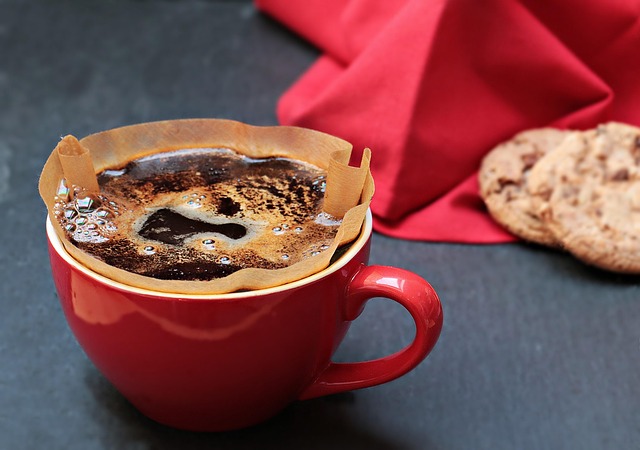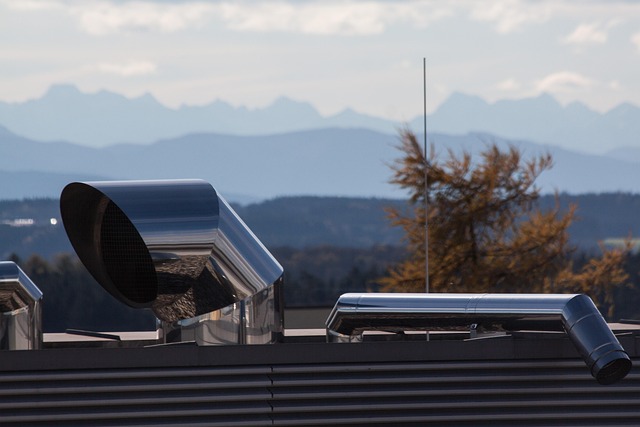HVAC systems regulate humidity and prevent mold growth if well-maintained. Regular cleaning, filter changes, and inspections are key to combating mold development. Maintaining optimal 30-50% humidity levels discourages mold. Annual HVAC check-ups remove dust and debris, enhancing energy efficiency and indoor air quality, avoiding mold spread.
“Discover effective HVAC maintenance tips to prevent mold buildup and ensure a healthy living environment. Understanding how your heating, ventilation, and air conditioning system plays a pivotal role in inhibiting mold growth is key. Regular filter cleaning and replacement, optimal humidity control, and annual system inspection are essential practices. By implementing these simple yet powerful strategies, you can mitigate mold risks and avoid the potential spread of mold through your HVAC system.”
- Understand HVAC's Role in Mold Prevention
- Regularly Clean and Replace Filters
- Maintain Optimal Humidity Levels
- Inspect and Service Systems Yearly
Understand HVAC's Role in Mold Prevention

HVAC systems play a crucial role in maintaining indoor air quality and preventing mold growth. While they primarily circulate and regulate temperature, proper HVAC maintenance is essential to avoid creating an environment conducive to mold proliferation. Understanding how your HVAC system interacts with humidity levels is key. High moisture content in the air can foster mold development, and inefficient or poorly maintained HVAC units may exacerbate this issue by distributing damp air throughout your space. Regular cleaning and filter changes are vital steps to ensure your HVAC system doesn’t inadvertently contribute to a moldy environment, as dirty filters can trap moisture and become breeding grounds for fungi.
Moreover, addressing any leaks or condensation problems within your HVAC unit is imperative. Leaky ducts or condensate lines can create moist environments where molds flourish. Regular inspections and maintenance checks can help identify and rectify these issues before they lead to mold buildup. Remember, a well-maintained HVAC system not only enhances comfort but also contributes significantly to maintaining a healthy indoor space by minimizing the potential for mold growth.
Regularly Clean and Replace Filters

Regular cleaning and replacement of HVAC filters is a crucial step in preventing mold buildup. Dust, allergens, and other contaminants can accumulate on filters over time, creating a breeding ground for molds if left unchecked. By regularly replacing or washing your HVAC filters, you reduce these potential harborages for mold growth, which in turn minimizes the risk of them spreading throughout your home’s air system.
When it comes to maintaining your HVAC system, don’t forget that dirty filters are not only inefficient but can also contribute to poor indoor air quality and health issues for residents. Keeping your filters clean ensures optimal airflow and helps your HVAC system run more efficiently, saving you money on energy bills in the long run.
Maintain Optimal Humidity Levels

Maintaining optimal humidity levels is crucial in preventing mold buildup, as high moisture levels can create a perfect breeding ground for fungi. An HVAC system plays a vital role here—not only does it regulate temperature but also controls humidity. Regularly checking and adjusting your system’s settings ensures a balanced environment. Using a dehumidifier or humidistat can help maintain humidity between 30-50%, which is the ideal range to inhibit mold growth without causing discomfort.
Remember, if your HVAC system is not effectively managing humidity, it could inadvertently contribute to mold issues. Thus, addressing any problems with your HVAC’s humidity control mechanism promptly is essential. This includes fixing leaks, ensuring proper ventilation, and scheduling regular maintenance checks to keep your system running optimally and create an environment that discourages the spread of mold.
Inspect and Service Systems Yearly

Regular inspection and servicing of your HVAC system is a crucial step in preventing mold buildup, which can be a significant issue within homes and buildings. Many people don’t realize that an inefficient or poorly maintained HVAC system could be a breeding ground for mold, leading to poor indoor air quality. By scheduling annual check-ups, you ensure that any potential problems are identified early on.
During these yearly services, professionals can thoroughly clean the system, removing any dust, debris, or moisture buildup that may attract molds. They inspect ducts, filters, and vents for damage or blockages, ensuring optimal air circulation. Remember, a well-maintained HVAC system not only prevents mold growth but also improves energy efficiency, so it’s a win-win for both your health and wallet!
